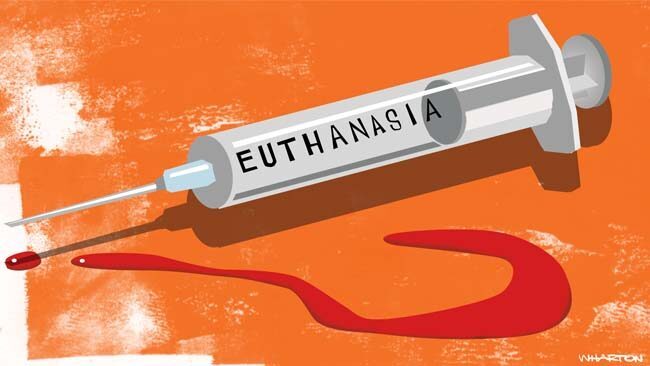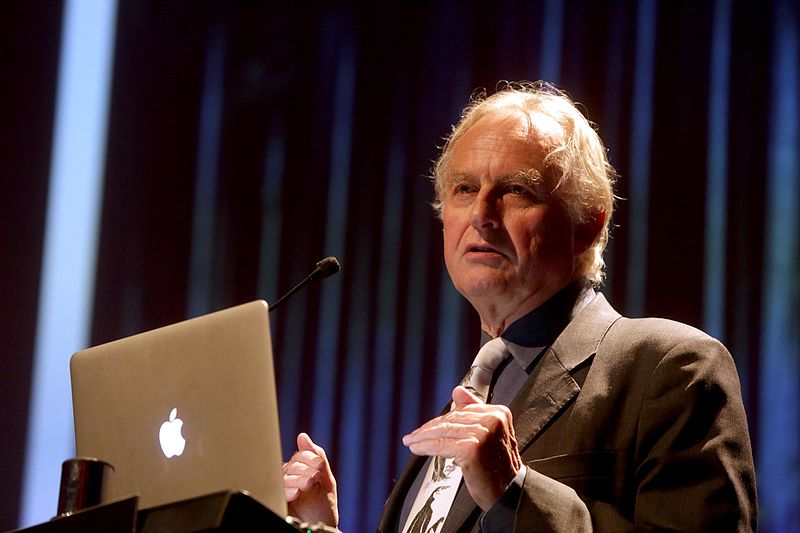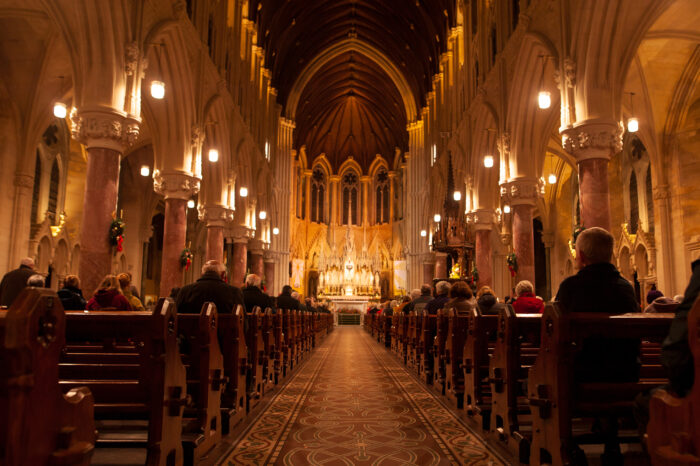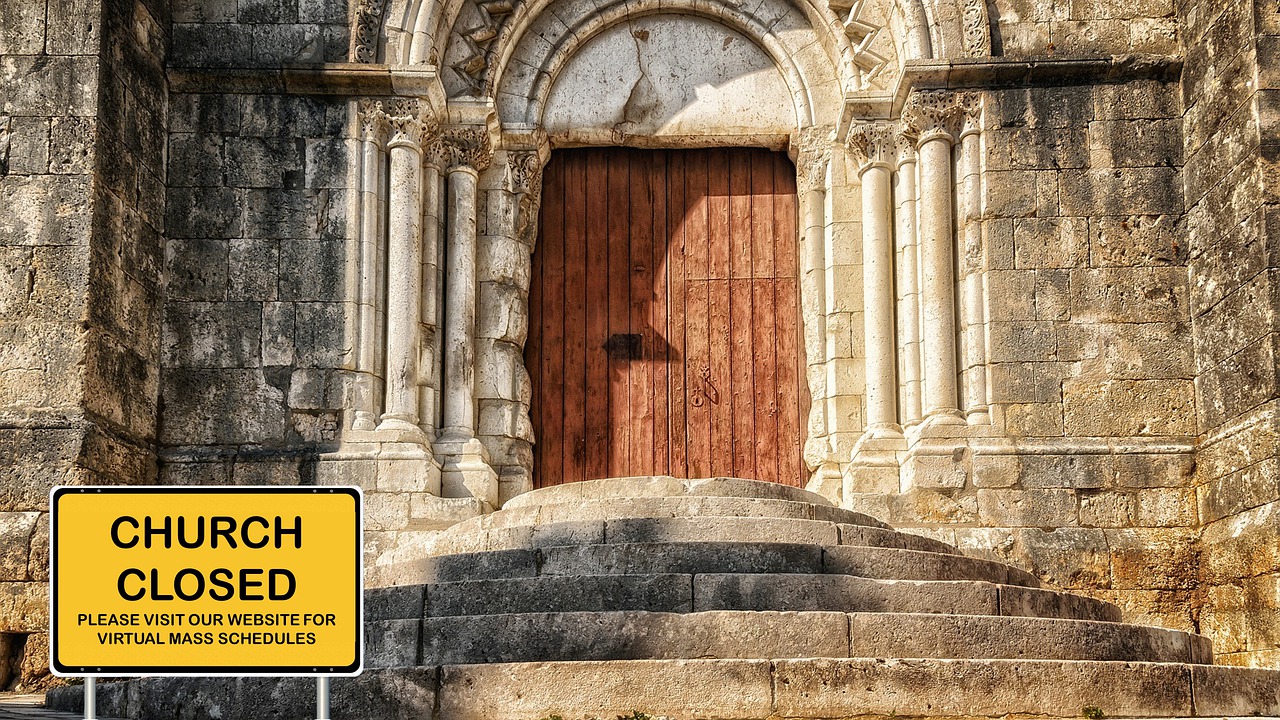
People who are adopted will be able to access their birth certificates irrespective of the wishes of their birth mothers under a law to be introduced by the Government.
Access to birth certificates is to be facilitated by way of a mechanism where surviving mothers can register their consent or their opposition to being contacted, but cannot veto the process, Minister for Children Roderic O’Gorman said.
In cases where the mother has registered her opposition to being contacted, the person seeking their birth certificate will attend a meeting where the wishes of the parent will be outlined, and the need to respect the mother’s privacy rights will be emphasised, prior to the information being released.
There will be no sanctions for anyone who contacts their birth mother against her stated wishes, the Minister added.

Germany has made a further step towards legalising assisted suicide after the country’s doctors’ association deleted from its code of conduct a ban on the practice.
Last year Germany’s highest court ruled unconstitutional a law that prohibited assisted suicide. Since then two separate draft Bills to legalise it are working their way through parliament. A final vote is expected before the end of next month.
The issue is particularly sensitive in Germany, given the Nazi regime murdered at least 300,000 people with mental and physical disabilities it dubbed “unworthy of life”.
German doctors held an emotional debate on the issue at their annual gathering on Wednesday. One camp urged the association to regulate the existing reality of assisted suicide in Germany, while another camp warned of “opening Pandora’s box”.
In a subsequent vote, a majority voted in favour of removing from their charter the sentence: “A doctor may not provide any assistance for suicide.”
The federation said it accepted its members’ “individual questions of conscience and no longer want to pursue this as breach of professional obligations”.

China’s new regulations for religious personnel went into effect May 1st, obliging those who hold any formal role in a religious group to pledge allegiance to the Chinese Communist Party and to resist foreign interference.
Many Catholic observers have voiced fear the new rules not only violate China’s agreement with the Vatican on bishops’ appointments, but that they make reconciliation between the so-called “underground” church and the official government-sanctioned church more difficult.
Initially published in November 2020, with a final draft released in February, the new rules provide for the creation of a national database containing information on religious personnel, including rewards and/or punishments they’ve received, and details on whether their ministry has been revoked.
The new rules stipulate that anyone exercising a religious function in China must “love the motherland, support the leadership of the Chinese Communist Party, support the socialist system, [and] respect the Constitution, laws, regulations and rules.”
Religious personnel are also required to “practice the fundamental values of socialism, adhere to the principle of independence and self-management of religion and adhere to the religious policy of China, maintaining national unity, ethnic unity, religious harmony and social stability.”

World famous author, Professor Richard Dawkins has defended past comments where he advised a woman it would be “immoral” to not abort a child with down syndrome.
Speaking to Brendan O’Connor on RTE radio 1 on Sunday, the atheist-scientist said using the word ‘immoral’ “was probably putting it a bit too strongly, but given that the amount of suffering in the world, probably does not go down, probably does go up, compared to having another child who does not have Down Syndrome, that’s what I meant”.
When asked how he “knows” that, he replied: “It seems to me to be plausible that if a child has any kind of disability, then you probably would increase the amount of happiness in the world more by having another child instead”.
But he admitted he had no “direct evidence” to back up that belief.
When asked what other imperfections he would screen out, he replied: “Well, I think deafness, blindness. It seems to me, to be … when you have the choice, when it is early in pregnancy and the foetus has hardly started to develop, almost everybody as a matter of fact does abort a child if it has an easily diagnosable disability”.
When again pushed on whether it would be “immoral” to not do so, he said he would take back that word, but added: “I think it would be wise and sensible to abort a child which had a serious disability which was diagnosed early in pregnancy. That is what almost everybody does in practice.“

The generation of human-animal embryos is not prohibited by any legislation, a TD has discovered on the back of a parliamentary question concerning the procedure.
This comes after a team of American and Chinese scientists created a human-monkey embryos, some of which were kept alive for up to 20 days.
Laois-Offaly TD Carol Nolan asked the Minister for Health if “chimeric” human-animal hybrid embryos are subject to regulation in Ireland and heard that currently there is no specific legislation concerning this practice.
Deputy Nolan said she finds it “incomprehensible” that none should be in place and said it “must be addressed as a matter of urgency”.

A parish priest has defended staging regular Sunday morning masses during the Covid-19 lockdown saying that no person has got the virus from attending.
Fr Willie Cummins, parish priest of Ennistymon, was speaking Sunday after 48 people attended 11am mass at the local Catholic church in the north Clare town.
There was one person in each row separated by two rows to the next person with the vast majority of mass goers wearing facemasks.
Fr Cummins has been saying mass publicly throughout the current lockdown, and he told the Irish Independent he would often have more than fifty people attending.
He told a reporter that people attending were not put at risk because of the sheer size of the building:
“Look at the size of the church. It is all sanitised and the doors are left open all day”, he said.
An Ennis man who is a regular at the 11am mass during the lockdown said he had no concerns over his health: “I’ve no worries. Absolutely none. It is a big church. We are all socially distant from each other. I never had a moment’s worry and I would have underlying conditions but I never had any concern in here. None whatsoever.”
The most recent Covid-19 figures for the north Clare electoral area that contains Ennistymon show it has one of the lowest Covid-19 rates in the country with fewer than five cases in the most recently fortnightly period to May 3.

Belgium has been challenged on the human rights implications of its euthanasia law at a meeting of the UN Human Rights Council in Geneva, Switzerland last week.
Undergoing a “Universal Periodic Review”, during which states are scrutinized on their human rights record and called to consider reforms, various states urged the government to improve treatment of the elderly and of persons with disabilities. Since legalization in 2002, the country has experienced a hundredfold increase in registered euthanasia deaths. In February 2014, the law was expanded to enable doctors to end the lives of children of any age.
Bangladesh was among those to raise concerns, asking that the Belgian government commit to “protect and promote the right of life of all people until natural death, without discrimination on the basis of age, disability or any other grounds.”
Additionally, Haiti urged the government to “ensure that patients receive palliative care of high quality.”
Egypt, in its general remarks, noted specific concerns about the legality of euthanasia being in violation of human rights treaties which affirm and protect every human being’s inherent right to life.

Religious believers are signing an open letter to the Taoiseach, Micheál Martin, demanding a commitment never to ban public worship in Ireland again.
Church doors will reopen for public worship on Monday after it was forbidden for most of the last 14 months, attending or holding public worship criminalised for much of that time. Despite commercial public venues such as dry cleaners and off-licenses being allowed to open with safety measures in place, worship in church was strictly prohibited.
“There is no clear reason as to why the Irish government prevented places of worship from opening for so long. Other European countries allowed religious worship to continue with safety precautions which protect both the public at religious services and the wider community,” said Lorcán Price, Irish barrister and Legal Counsel for the human rights group, ADF International.
The open letter is available to read and sign at www.letusworship.global/ireland.
It makes three concrete asks of the government.
First, that the Taoiseach affirm respect for the fundamental right to freedom of religion, which is enshrined in Article 44 of the Constitution and protected in international human rights law.
Second, it demands that he recognise that churches are an essential part of society, and finally, that he commits that the government will never again impose a blanket ban on public worship.

A landmark case against the UK Government over the law that allows abortion up to birth for Down Syndrome will be heard at the High Court in London on 6th July.
The case claims the law is discriminatory against people with disabilities.
Heidi Crowter, a 25-year-old woman from Coventry who has Down Syndrome, together with Máire Lea-Wilson from Brentford, West London, whose twenty-three-month-old son Aidan has Down’s syndrome, are challenging the UK Government over a disability clause in the current law.
Heidi and her team have already crowdfunded over £80,000 for the case.
Currently in England, Wales and Scotland, there is a general 24-week time limit for abortion, but if the baby has a disability, including Down Syndrome, cleft lip and club foot, abortion is legal right up to birth.

The Karolinska Hospital in Sweden has ended the practice of prescribing puberty blockers and cross-sex hormones for minors under age 16 who think they belong to the opposite sex.
Hormonal intervention for young people ages 16-18 is still allowed, but can only occur in research settings approved by Sweden’s ethics review board, following a thorough informed consent that discloses the significant risks and uncertainties of the drugs, and considers the minor’s maturity level and ability to provide true informed consent.
Sweden is the first country whose leading hospital has explicitly stopped following the Dutch protocol, which allows for administration of puberty blockers at age 12 (and increasingly, as young as 8-9), and cross-sex hormones at the age of 16. It also is the first country to officially deviate from WPATH guidance—the group which has long positioned itself as the world authority in transgender health.
The Swedish hospital’s new policy is consistent with Finland’s recently revised guidelines, which were changed to prioritise psychological interventions and support rather than medical interventions, particularly for youth with no childhood history of gender dysphoria (presently the most common presentation). Significant changes are also underway in the UK, following the High Court ruling that deemed hormonal interventions for minors experimental, and cautioned that minors are rarely able to provide truly informed consent for interventions with such profound life-long consequences.